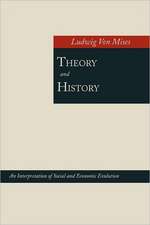Reflections on the Revolution in France
Autor Edmund Burke Editat de J. G. A. Pococken Limba Engleză Paperback – 15 sep 1987
| Toate formatele și edițiile | Preț | Express |
|---|---|---|
| Paperback (11) | 48.95 lei 10-16 zile | +19.03 lei 6-12 zile |
| Oxford University Press – 26 mar 2009 | 48.95 lei 10-16 zile | +19.03 lei 6-12 zile |
| CREATESPACE – | 55.14 lei 22-36 zile | |
| Penguin Books – 29 sep 1982 | 60.01 lei 25-31 zile | +23.54 lei 6-12 zile |
| Mint Editions – 30 noi 2020 | 62.86 lei 22-36 zile | |
| – | 79.38 lei 22-36 zile | |
| Hackett Publishing Company – 15 sep 1987 | 100.18 lei 22-36 zile | +18.23 lei 6-12 zile |
| CreateSpace Independent Publishing Platform – | 112.39 lei 22-36 zile | |
| Broadview Press Inc – 9 dec 2021 | 142.15 lei 22-36 zile | +26.03 lei 6-12 zile |
| Stanford University Press – 28 feb 2002 | 257.52 lei 22-36 zile | |
| Digireads.com – 17 sep 2018 | 75.45 lei 43-57 zile | |
| Cambridge University Press – 21 aug 2013 | 368.30 lei 43-57 zile | |
| Hardback (3) | 82.72 lei 22-36 zile | +14.74 lei 6-12 zile |
| Mint Editions – 8 dec 2020 | 82.72 lei 22-36 zile | +14.74 lei 6-12 zile |
| Hackett Publishing Company – 14 sep 1987 | 268.08 lei 22-36 zile | |
| Stanford University Press – 31 ian 2002 | 841.84 lei 43-57 zile |
Preț: 100.18 lei
Preț vechi: 108.61 lei
-8% Nou
Puncte Express: 150
Preț estimativ în valută:
19.18€ • 20.84$ • 16.12£
19.18€ • 20.84$ • 16.12£
Carte disponibilă
Livrare economică 31 martie-14 aprilie
Livrare express 15-21 martie pentru 28.22 lei
Preluare comenzi: 021 569.72.76
Specificații
ISBN-13: 9780872200203
ISBN-10: 0872200205
Pagini: 288
Dimensiuni: 9 x 215 x 16 mm
Greutate: 0.24 kg
Editura: Hackett Publishing Company
Colecția Hackett Publishing Company, Inc (US)
Locul publicării:United States
ISBN-10: 0872200205
Pagini: 288
Dimensiuni: 9 x 215 x 16 mm
Greutate: 0.24 kg
Editura: Hackett Publishing Company
Colecția Hackett Publishing Company, Inc (US)
Locul publicării:United States
Recenzii
Pocock is, without question, the leading historian of eighteenth-century British-American political thought. . . . All of his skills are brilliantly employed in the Introduction. . . . In addition to being the best treatment of Burke's thought in context, it is . . . the best and most concentrated presentation of Pocock's own view of the main contours of eighteenth-century political thought. . . . Finally, the Reflections and other texts by Burke are then woven into this rich fabric, thus providing the reader with an understanding of Burke's thought which is deeper and more complex (and surely more historically sensitive) than any available in the secondary literature. --James Tully, McGill University
Of all the scholars who currently study the history of Western political thought, no one is more fertile, eloquent, and ingenious than J. G. A. Pocock. --Keith Thomas, in the New York Review of Books
Of all the scholars who currently study the history of Western political thought, no one is more fertile, eloquent, and ingenious than J. G. A. Pocock. --Keith Thomas, in the New York Review of Books
Descriere
Descriere de la o altă ediție sau format:
Edmund Burke was the dominant political thinker of the last quarter of the eighteenth century in England. His reputation depends less on his role as a practising politician than on his ability to set contemporary problems within a wider context of political theory. Above all, he commented on change. He tried to teach lessons about how change should be managed, what limits should not be transgressed, and what should be reverently preserved. Burke's generation was much in need of advice on these matters. The Industrial Revolution, the American Revolution, and catastrophically, the French Revolution presented challenges of terrible proportions. They could promise paradise or threaten anarchy. Burke was acutely aware of how high the stakes were. The Reflections on the Revolution in France was a dire warning of the consequences that would follow the mismanagement of change. ABOUT THE SERIES: For over 100 years Oxford World's Classics has made available the widest range of literature from around the globe. Each affordable volume reflects Oxford's commitment to scholarship, providing the most accurate text plus a wealth of other valuable features, including expert introductions by leading authorities, helpful notes to clarify the text, up-to-date bibliographies for further study, and much more.
Edmund Burke was the dominant political thinker of the last quarter of the eighteenth century in England. His reputation depends less on his role as a practising politician than on his ability to set contemporary problems within a wider context of political theory. Above all, he commented on change. He tried to teach lessons about how change should be managed, what limits should not be transgressed, and what should be reverently preserved. Burke's generation was much in need of advice on these matters. The Industrial Revolution, the American Revolution, and catastrophically, the French Revolution presented challenges of terrible proportions. They could promise paradise or threaten anarchy. Burke was acutely aware of how high the stakes were. The Reflections on the Revolution in France was a dire warning of the consequences that would follow the mismanagement of change. ABOUT THE SERIES: For over 100 years Oxford World's Classics has made available the widest range of literature from around the globe. Each affordable volume reflects Oxford's commitment to scholarship, providing the most accurate text plus a wealth of other valuable features, including expert introductions by leading authorities, helpful notes to clarify the text, up-to-date bibliographies for further study, and much more.
Notă biografică
Edmund Burke (1729 - 9 July 1797) was an Irish-British statesman, economist, and philosopher. Born in Dublin, Burke served as a member of Parliament (MP) between 1766 and 1794 in the House of Commons of Great Britain with the Whig Party. Burke was a proponent of underpinning virtues with manners in society and of the importance of religious institutions for the moral stability and good of the state. These views were expressed in his A Vindication of Natural Society. He criticised the actions of the British government towards the American colonies, including its taxation policies. In the 19th century, Burke was praised by both conservatives and liberals. Subsequently, in the 20th century, he became widely regarded, especially in the United States, as the philosophical founder of conservatism.
Cuprins
Reflections on the Revolution in France Acknowledgments
Introduction
Biographial Note
Burke's Prefatory Note
Reflections on the Revolution in France
Notes Bibliographical Note
Textul de pe ultima copertă
“Providing a fresh perspective on a much-studied classic, Clark’s edition is both innovative and informative. The first modern edition to reprint the text of the first edition of the Reflections, it brings readers closer to the historic document. . . . This volume should become the starting point for serious study of the Reflections.”—F. P. Lock, Queen’s University
“ . . . [Reflections on the Revolution in France] will help both the student and the advanced scholar to engage with one of the founding texts of modernity, as well as providing, in its own right, an interpretive contribution to Burke studies.”—History of Political Thought
“ . . . [Reflections on the Revolution in France] will help both the student and the advanced scholar to engage with one of the founding texts of modernity, as well as providing, in its own right, an interpretive contribution to Burke studies.”—History of Political Thought























